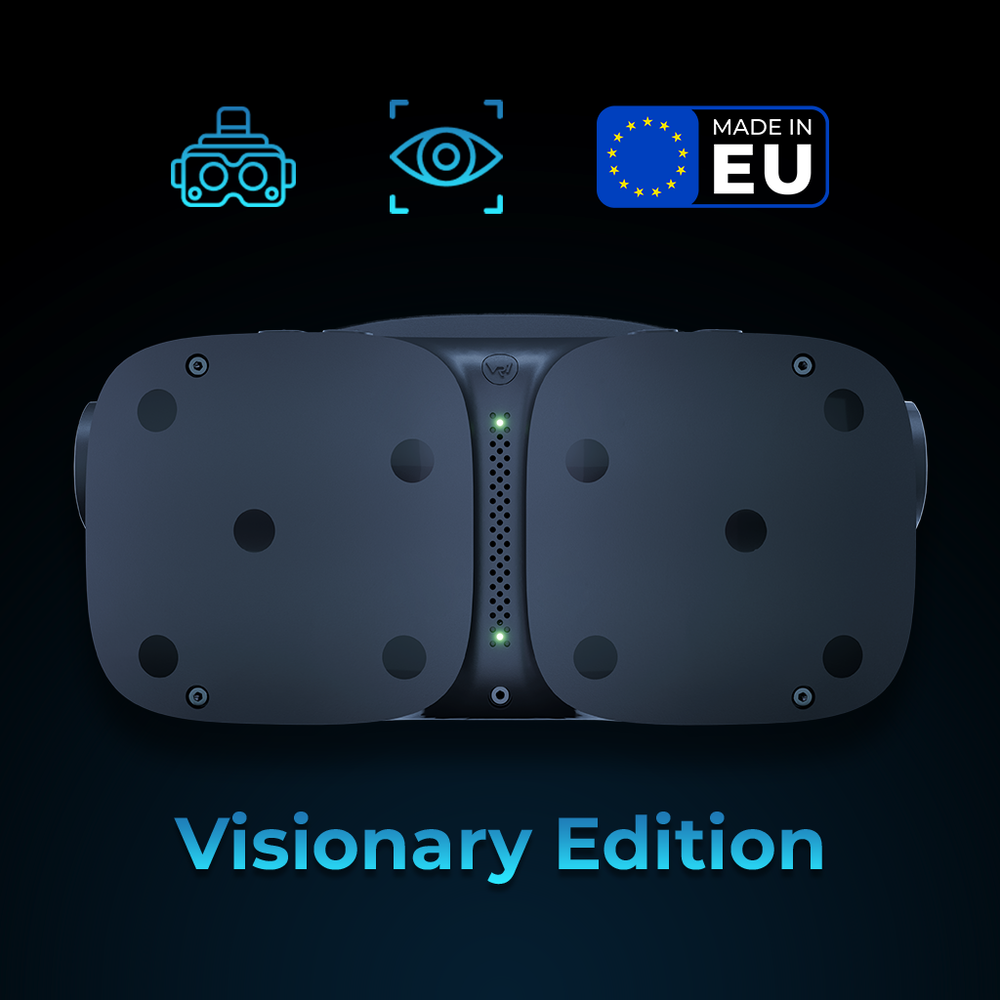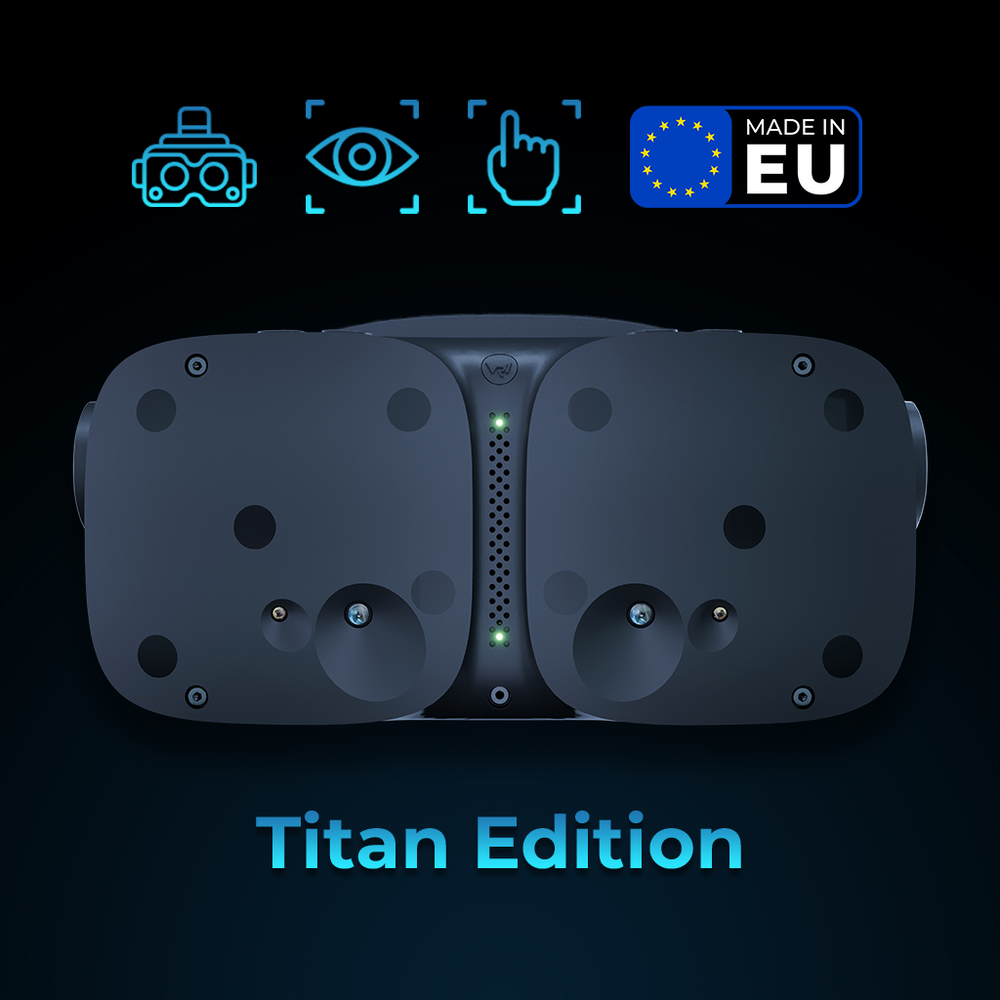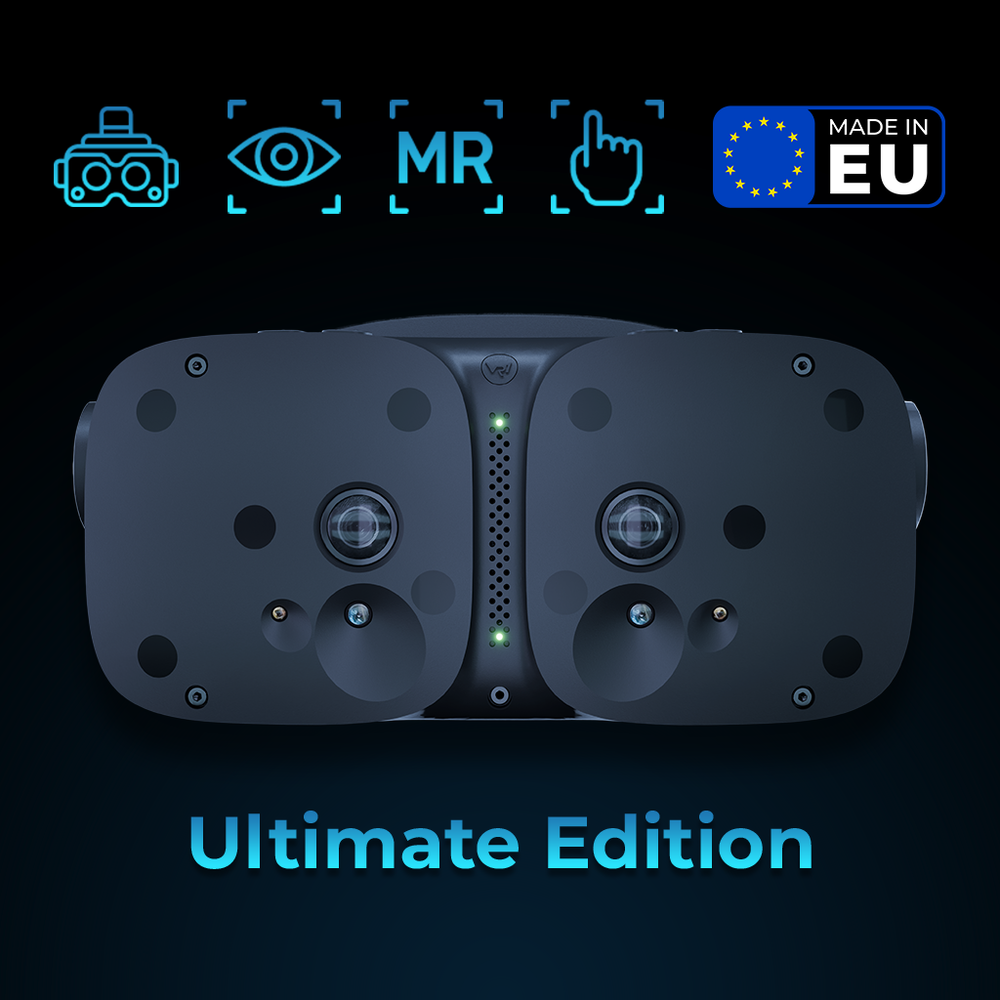What the experts think
Featured in
Frequently Asked Questions
Share some information with customers on how to find answers to frequently asked questions.
What is the Somnium VR1?
The Somnium VR1 is a premium mixed reality headset designed for both consumers and businesses, offering high-resolution displays and advanced mixed reality capabilities.
What is the IPD range of VR1?
The VR1 supports a wide range of IPD adjustments from 57 to 76 mm. Thanks to the largest sweet spot on the market, users can easily set IPD outside their preferred values and still remain within the sweet spot.
Where is the VR1 manufactured?
The VR1 is designed, developed, and manufactured in the European Union, specifically in the Czech Republic.
Does the VR1 support SteamVR and OpenXR?
Yes, the VR1 supports both SteamVR and OpenXR. It has its own OpenXR runtime with advanced features.
What are the key specifications of the Somnium VR1?
- Native resolution: 2880x2880 per eye
- Field of view: 130° horizontal, 105° vertical (REAL undistorted FOV values). The VR1 can render up to 140° horizontally, though the actual FOV may vary slightly depending on face and eye shape.
- Refresh rate: 72 Hz, 90 Hz, upgradeable to 120 and 144 Hz (experimental)
- Local dimming zones: 576 per eye
- Eye tracking: 120 Hz, with an open-sourced algorithm that can be used and modified for any use case
- Connectivity: USB-C, DisplayPort 1.4, 3.5mm audio jack
What features does the Somnium VR1 offer for mixed reality?
The VR1 supports application-independent masking and CAD mesh upload, allowing interaction with real-world elements like car or airplane cockpits through hand tracking and MR cameras.
What kind of tracking system does the VR1 use?
The VR1 uses SteamVR's lighthouse tracking system, compatible with existing HTC Vive and Valve Index base stations (both 1.0 and 2.0). It also has several built-in IMU units for precise 3DOF operation if needed.
Can users customize the VR1?
Yes, the Somnium VR1 is built with various types of customization in mind. CAD files for custom 3D prints are available. The headset also supports four modular anchor points with CAD files. Additionally, it offers the widest range of customizable software settings on the market.
What kind of support is there for prescription lenses?
The VR1 is compatible with prescription lenses thanks to built-in magnets around the lenses. The official launch partner for VR1 is VR Optician.
Will the VR1 support wireless operation?
Wireless capabilities are planned for future development.
How does the VR1 handle display and image quality?
The VR1 features high-resolution displays and the most advanced dual aspheric lenses on the market, allowing for up to 210 nits of brightness and incredible sharpness across the entire FOV. Additionally, advanced local dimming technology provides superior black levels.
What kind of applications is the VR1 best suited for?
The VR1 is ideal for a wide range of applications, including gaming, consumer or professional simulations, educational training, enterprise solutions, and research.
How does the VR1 enhance user comfort?
The VR1 is designed with user comfort in mind, featuring an adjustable and modular strap, balanced weight distribution, and a customizable face interface.
What operating systems are compatible with the VR1?
The VR1 is compatible with Windows, with future compatibility for Linux in development.
Is there a warranty or support plan available for the VR1?
Somnium VR1 provides a warranty for consumers. More details about the warranty can be found in the Terms and Conditions.
How does the VR1 handle audio?
The VR1 has three USB-C Gen 2 ports and a 3.5mm audio jack for external headphone support. Additionally, it features built-in studio-quality stereo microphones.
What kind of hand tracking technology does the VR1 use?
The VR1 utilizes advanced Ultraleap hand tracking technology for natural and intuitive interactions within mixed reality environments. Each VR1 with hand tracking built-in includes an Enterprise License from Ultraleap, allowing businesses and developers a more in-depth and independent development process.
Can the VR1 be used with existing VR content and platforms?
Yes, the VR1 is designed to be compatible with existing VR content and platforms, ensuring a wide range of available applications and experiences.
What are the connectivity options for the VR1?
The VR1 supports various connectivity options, including three USB-C Gen 2 ports.
What cable does the VR1 use for PC connection?
The VR1 uses AOC (Active Optical Cable) for high and reliable throughput. For mixed reality models, there is a second AOC cable. These cables are detachable and secured with standardized screws, making them easy to replace in case of malfunction without needing to replace the entire headset.




![Somnium VR1 - Military Edition [Only for professional pilot training and military applications] TAA Compliant](http://store.somniumspace.com/cdn/shop/files/VR1_MilitaryEd_1000x.png?v=1746191178)